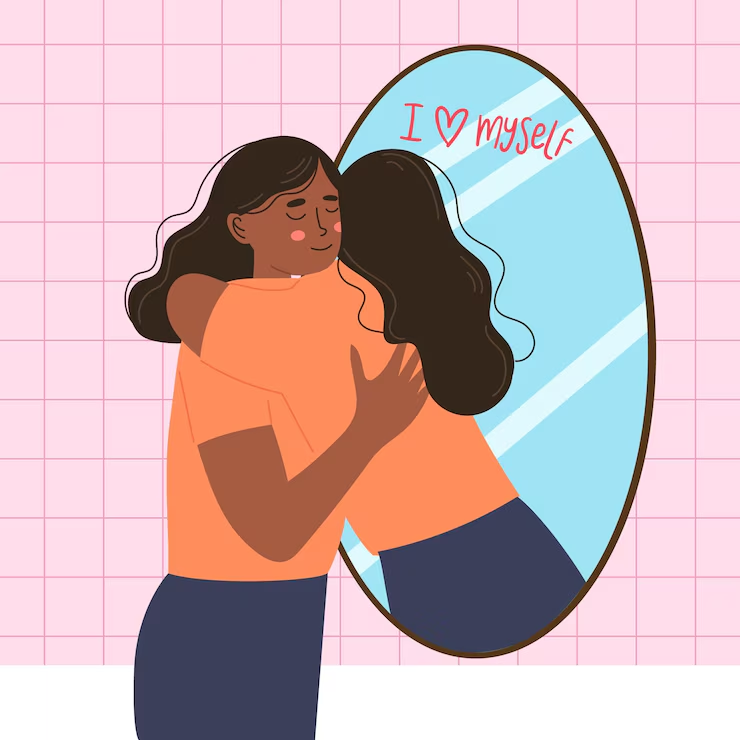
Is Self-Care Being Selfish? Know What Gen Z Thinks About This
How often do you feel a tinge of guilt when you take a break? Maybe it's cancelling plans to rest, turning your phone on Do Not Disturb, or just saying "no" to something. For many of us, especially those who grew up believing productivity equals worth, putting ourselves first still feels uncomfortable.
But there’s a shift happening. And it’s being led by Gen Z.
More than any generation before, they’re embracing self-care as a non-negotiable part of life, not a luxury. And it’s not just about wellness trends or social media aesthetics, it’s about awareness. These generations are more attuned to mental health, emotional well-being, and the importance of boundaries, and they’re actively choosing to prioritise those things.
What Does Gen Z Think About Self-Care?
Here’s how Gen Z is reshaping the way we think about self-care:

An ekincare report reveals that Gen Z is breaking the stigma and showing significantly higher engagement with mental health support services. Employees aged 19–30 show the highest engagement, with a usage rate of 9.22%. This reflects a clear generational shift towards openness and acceptance, something that wasn’t as prevalent in previous generations.
It’s not that older generations didn’t value well-being, but the language, resources, and cultural permission weren’t always there. Burnout, for instance, wasn’t widely recognised until recently. Mental health discussions were often limited, both at home and in the workplace. The gap wasn’t in caring; it was in awareness.
How Is Gen Z Reshaping The Way We Think About Self-Care
Thanks to open conversations and digital access to mental health tools, Gen Z is helping bridge that gap. They’re showing us that rest isn’t laziness and that caring for yourself doesn’t mean you care less about your responsibilities. In fact, it’s the opposite. They’ve learned that showing up for others starts with showing up for yourself.
As Dr Soumya Shree, Clinical Psychologist at Kshemavana, points out, “It begins with self-awareness and healthy boundaries. Regular screen breaks, adhering to set work times, and learning when to say no are easy yet powerful practices.” These aren’t grand gestures but everyday habits that preserve mental clarity and emotional balance.
1
2
3
4
Importantly, recognising the signs that things aren’t quite right is crucial. “Recurring headaches, difficulty in sleeping despite feeling exhausted, or feeling removed from everything are also warning signs,” Dr Shree adds. “These aren't little problems, they might be your brain's request for assistance.”

Don't Miss: Why Self-Care Matters At Work: Strategies For Better Well-being
Thankfully, more workplaces are beginning to understand that supporting mental health isn’t just about reacting to crises. As Dr Noel, Co-founder and Chief Business Officer, ekincare, puts it, “Companies are beginning to recognise that counselling sessions aren’t just for those with problems, they’re also for maintaining good mental health. Not everyone is in distress, but fostering and mentoring a good mental state is just as important.”
Don't Miss: Easy Steps To Kick Start Your Self Care Journey
This shift is encouraging. Workplaces are beginning to catch up, not because it’s trendy, but because there’s a growing recognition that well-being can’t be an afterthought. It needs to be part of the design. And this isn’t just about individual choices, it’s about creating environments where self-care is normalised and supported. The more we talk about it, the more we make space for others to do the same. So, the next time you hesitate to rest or say, “I need a break,” remember: that self-care isn’t selfish. It’s what helps you stay grounded, strong, and connected. And thanks to Gen Z, we’re finally starting to see it that way.
Credits: freepik
For more such stories, stay tuned to HerZindagi.
Also watch this video
Herzindagi video
1
2
3
4